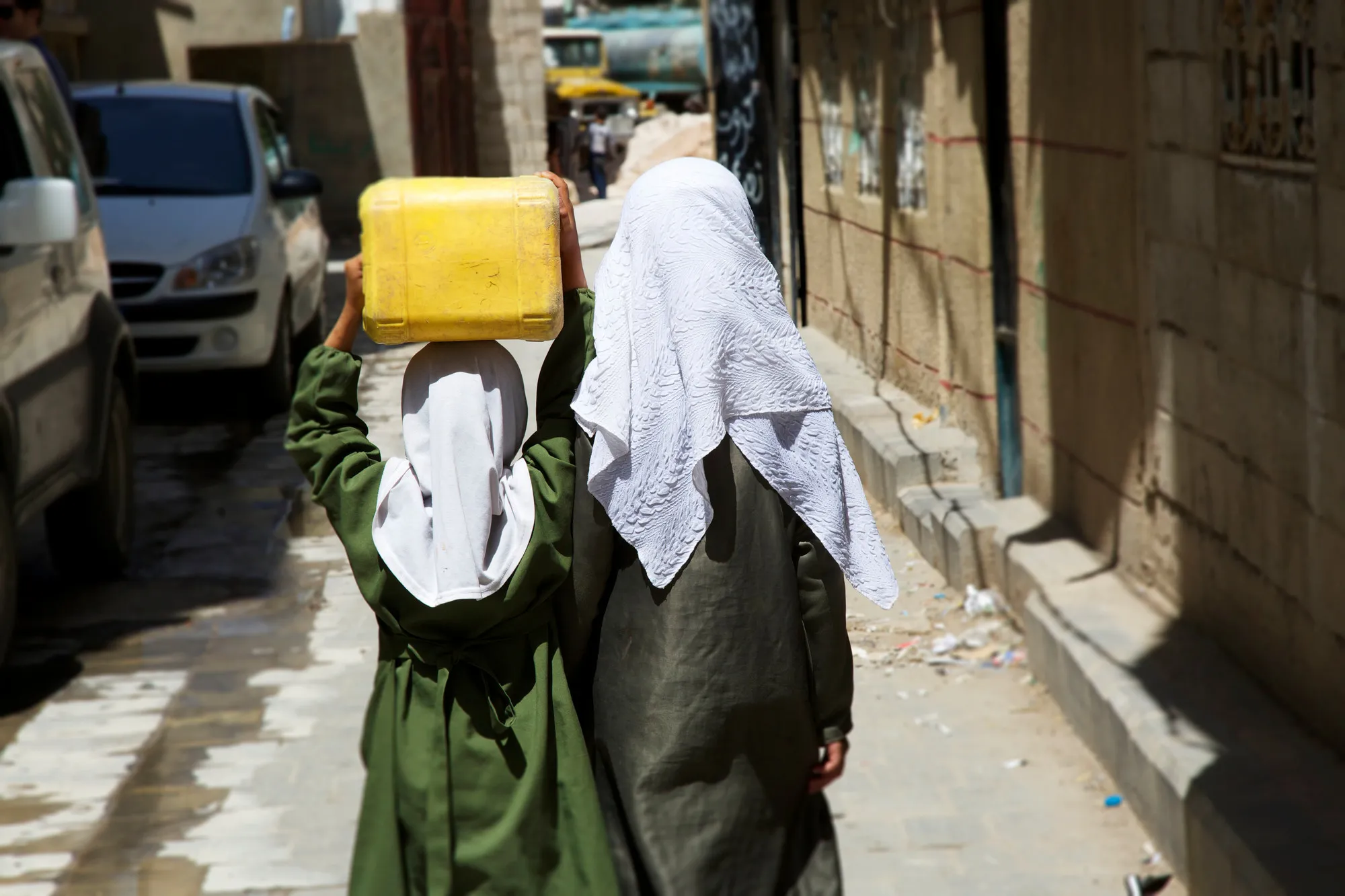“I carry one of the jerry cans on my head and the other one I hold with my hands,” she says. Once home, she helps her mother in the kitchen, cooking and preparing the dough for her mother to make bread.
“I would love to see my kids go to school but I am barely able to find them food to eat,” says Maryam’s mother Saadah. The 40-year-old is the mother of two boys and five girls. “Schools needs books, stationary, clothes. How can I afford this?”
Saadah’s husband died 10 years ago in a car accident with her brother.
“He told me he will come back. He did, but in a white coffin,” she says. “This is my destiny. He went away and put a heavy burden on my shoulders. I would love for my kids to go to school and give them better chances in life. But the hardships of life after my husband died and the conflict-related challenges make it even more difficult for me to even think about it.”
He told me he will come back. He did, but in a white coffin.
Maryam is among millions of Yemeni children out of school as a result of violence and difficult living conditions. Yemen faces the world’s worst humanitarian crisis with 22 million people in need of assistance. In such areas that are hobbled by war and conflict, girls are vulnerable to forced marriage, as their families seek to save them by marrying them early to a husband who they believe can better protect them. Most girls who marry early invariably miss out on school, vocational training and, consequently, the opportunity to live into all that they can be. More than two-thirds of Yemeni girls are married off before they turn 18, compared with 50 percent before the war, according to UNICEF.
Right now, Maryam is keeping her sights set on school. “I wish that one day I’ll join my friends and be able to write my name. Writing my name is the biggest dream I have.”

